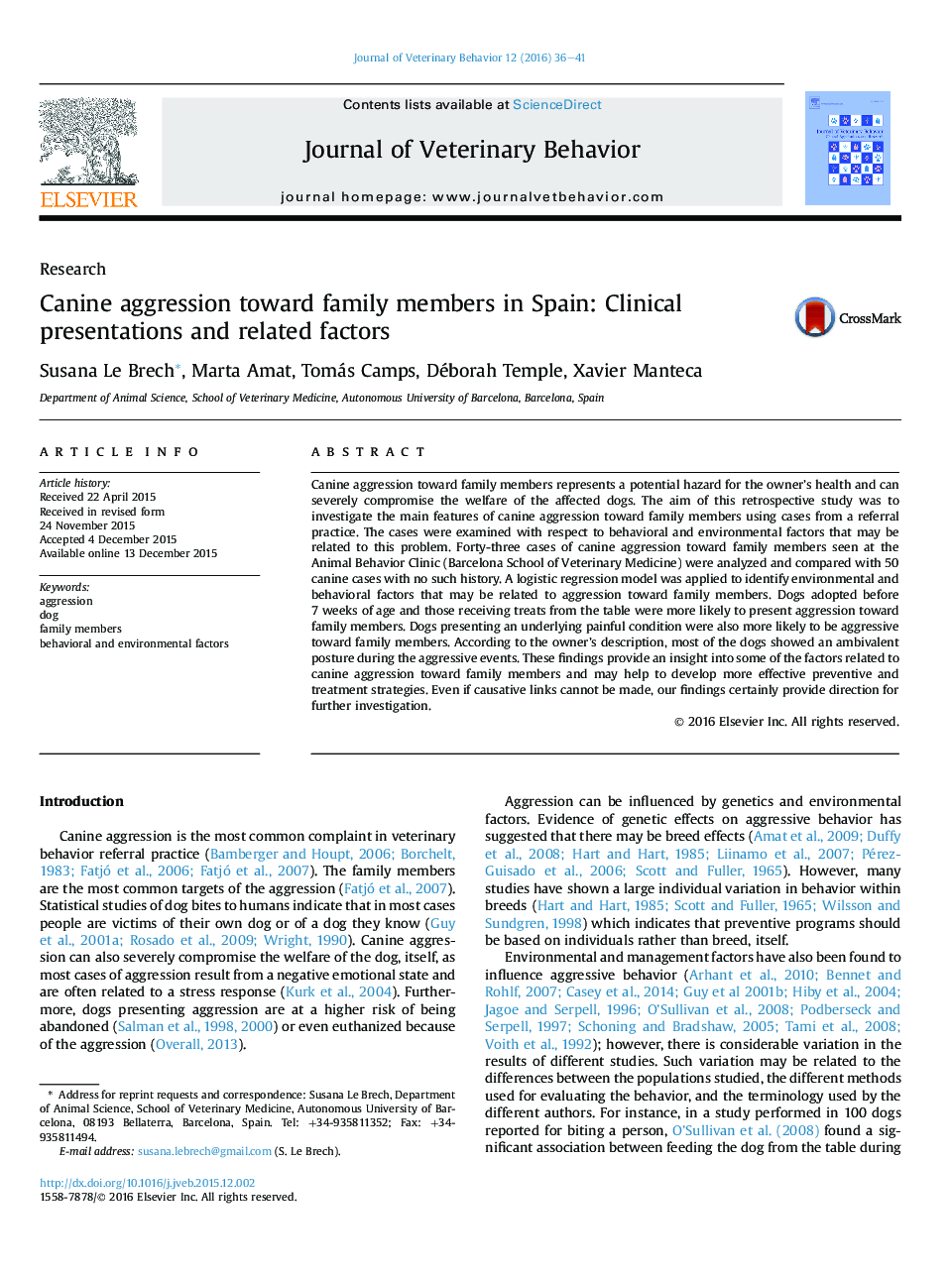| Article ID | Journal | Published Year | Pages | File Type |
|---|---|---|---|---|
| 2398650 | Journal of Veterinary Behavior: Clinical Applications and Research | 2016 | 6 Pages |
Abstract
Canine aggression toward family members represents a potential hazard for the owner's health and can severely compromise the welfare of the affected dogs. The aim of this retrospective study was to investigate the main features of canine aggression toward family members using cases from a referral practice. The cases were examined with respect to behavioral and environmental factors that may be related to this problem. Forty-three cases of canine aggression toward family members seen at the Animal Behavior Clinic (Barcelona School of Veterinary Medicine) were analyzed and compared with 50 canine cases with no such history. A logistic regression model was applied to identify environmental and behavioral factors that may be related to aggression toward family members. Dogs adopted before 7Â weeks of age and those receiving treats from the table were more likely to present aggression toward family members. Dogs presenting an underlying painful condition were also more likely to be aggressive toward family members. According to the owner's description, most of the dogs showed an ambivalent posture during the aggressive events. These findings provide an insight into some of the factors related to canine aggression toward family members and may help to develop more effective preventive and treatment strategies. Even if causative links cannot be made, our findings certainly provide direction for further investigation.
Keywords
Related Topics
Life Sciences
Agricultural and Biological Sciences
Animal Science and Zoology
Authors
Susana Le Brech, Marta Amat, Tomás Camps, Déborah Temple, Xavier Manteca,
